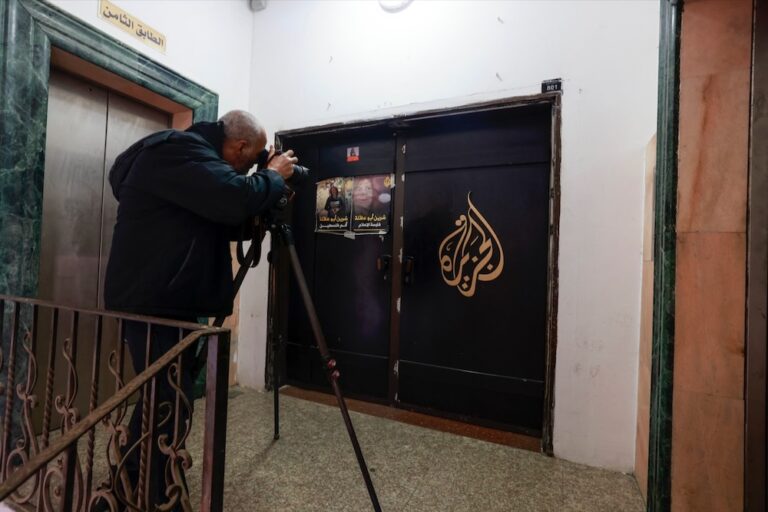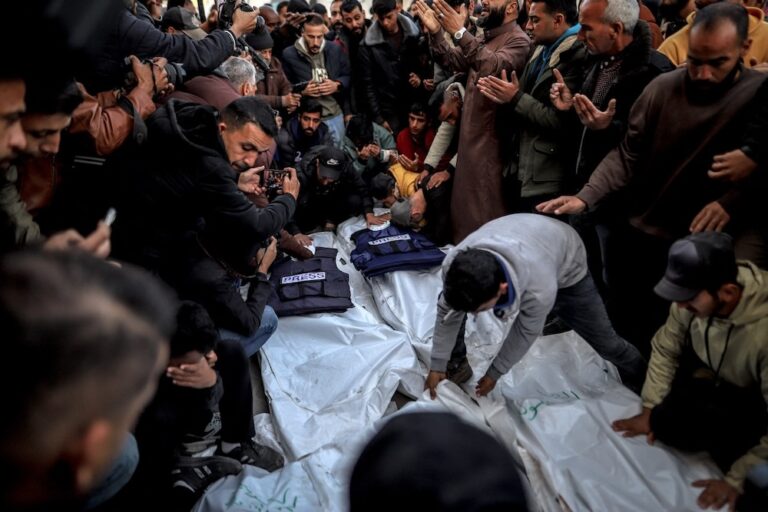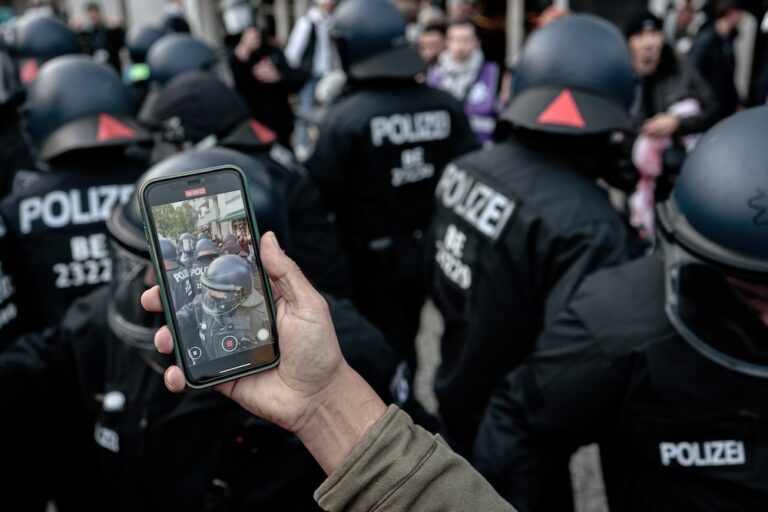(RSF/IFEX) – On 3 May 2002, RSF called on Israeli Prime Minister Ariel Sharon to free seven Palestinian journalists and to stop attacking press freedom. “As we celebrate the 12th World Press Freedom Day, we ask you to cease attacking journalists, especially those who are Palestinian,” RSF Secretary-General Robert Ménard said in a letter to […]
(RSF/IFEX) – On 3 May 2002, RSF called on Israeli Prime Minister Ariel Sharon to free seven Palestinian journalists and to stop attacking press freedom.
“As we celebrate the 12th World Press Freedom Day, we ask you to cease attacking journalists, especially those who are Palestinian,” RSF Secretary-General Robert Ménard said in a letter to the prime minister. “The seven journalists that Israel is still holding were apparently just doing their job,” he said. At least 20 Palestinian journalists have been arrested since the start of the Israeli occupation of Palestinian towns and cities on 29 March.
The detained journalists are Jalal Hameid, of the privately-owned Bethlehem TV station Al-Rouah; Maher al-Dessouki, of Al-Quds Educational TV; Kamal Ali Jbeil, of the daily “Al-Quds”; Hussam Abu Alan, a photographer for Agence France-Presse (AFP); Iyyad el-Juneidi, managing editor of the Hebron TV station Al-Mostaqbal; Yusri el-Jamal, a Reuters sound man; and Ayman el-Kawasmi, head of the local radio station El Horriya.
On 30 April, el-Jamal and Mazen Dana, Reuters sound man and cameraman respectively, were detained while filming the wounded at the Hebron hospital. The soldiers took their press and ID cards and blindfolded and handcuffed them. The journalists were taken away in an Israeli tank and driven to the district coordination office. On the way, the soldiers humiliated and threatened them. According to Dana, one of the soldiers pointed a gun at his head and asked him: “How do you want to die?” When they got to the office, they were forced to lie on the floor for several hours without food or drink. Dana was interrogated the next morning, received apologies and was freed. El-Jamal, however, was kept in detention and his whereabouts are unknown.
Also on 30 April, el-Kawasmi was arrested at his home. He was handcuffed and blindfolded and taken to the district coordination office. On 1 May, he was transferred to the Ofer detention centre, near Ramallah. Moreover, the soldiers destroyed all of El Horriya’s equipment.
On 29 April, el-Juneidi was arrested at the Al Mostaqbal television station offices. Two Israeli soldiers smashed the station’s equipment and blindfolded and handcuffed el-Juneidi. He is also being held at the Ofer detention centre.
On 24 April, photographer Abu Alan was arrested at the Beit Anun checkpoint near Hebron. He was going to Bani Naim to cover the funeral of two Palestinians, along with Reuters cameraman Dana and other journalists. Abu Alan was blindfolded and handcuffed and taken away in an Israeli tank. Dana was freed a few hours later. It is not known where Abu Alan, who lives in Hebron and has worked for AFP for seven years, is being held. Like most Palestinian journalists, he has not been able to get his Israeli press card renewed since the beginning of the year.
On 18 April, al-Dessouki and Jbeil were arrested by Israeli soldiers in Ramallah. They are being held at the Ofer detention centre.
On 3 April, Hameid and Ashraf Farraj, Al-Rouah’s editor-in-chief, were arrested at the press centre in Bethlehem along with several other journalists. According to Hamdi Farraj, head of Al-Rouah, the other journalists were freed while Hameid and Ashraf Farraj were transferred to the Beitunia detention centre near Ramallah. Ashraf Farraj was freed on 24 April but Hameid is still being held.


